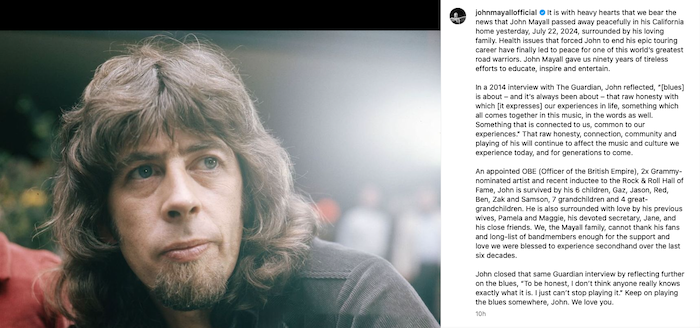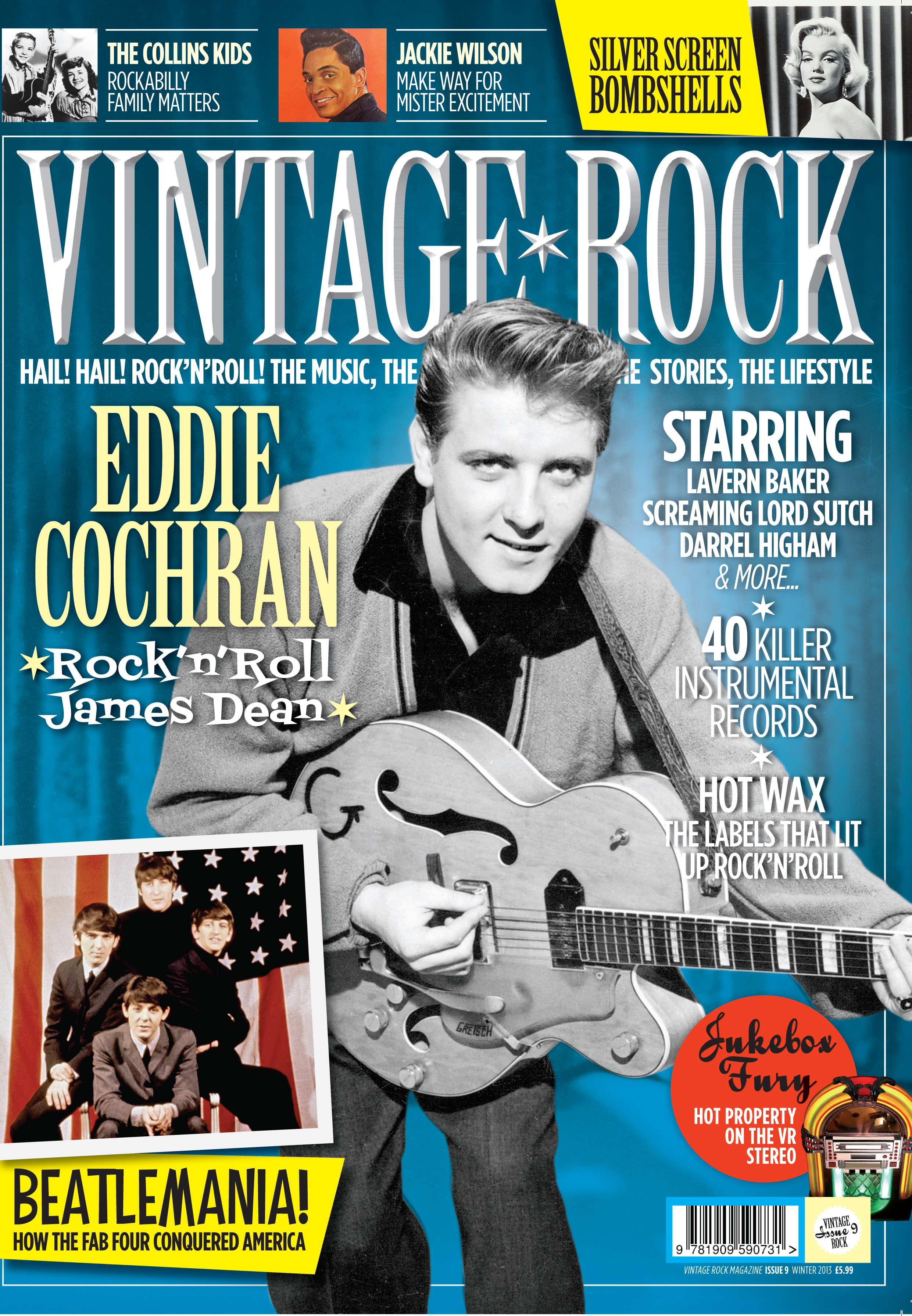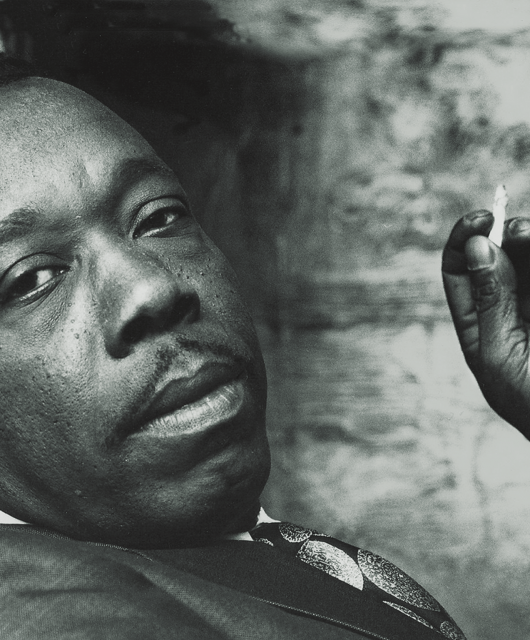British blues pioneer John Mayall OBE – whose band the Bluesbreakers influenced countless generations of rock artists – has died aged 90.
“It is with heavy hearts that we bear the news that John Mayall passed away peacefully in his California home yesterday, July 22, 2024, surrounded by his loving family,” a statement on social media said.
“Health issues that forced John to end his epic touring career have finally led to peace for one of this world’s greatest road warriors. John Mayall gave us 90 years of tireless efforts to educate, inspire and entertain,” it continued. “Keep on playing the blues somewhere, John. We love you.”
Breaking The Blues
Born in Macclesfield in 1933, Mayall spent three years in the army, including a stint in Korea, before returning to the UK where, in 1963, he moved down to London to pursue a career in music. “I was listening to blues music from about 1945/46 onwards, so it was always in my life,” he told Vintage Rock’s David West in 2017.
After moving to London in 1963, Mayall founded the Bluesbreakers and was the epicentre of a network of top blues players. The list of people who played with Mayall included Eric Clapton, Mick Fleetwood, Mick Taylor, Aynsley Dunbar, Andy Fraser and John McVie.
“The music was everything to me and all that mattered. As long as I could hear what I wanted to hear,” he told VR. “It was people like Muddy Waters, John Lee Hooker, T-Bone Walker, Howlin’ Wolf, they all started coming out at the same time, Sonny Boy Williamson, the list is quite endless. There was definitely a resurgence of interest in American blues, mainly the stuff out of Chicago. Lightnin’ Hopkins was coming out of Texas, but as English people who didn’t have access to it [live], we were record collectors and that was our connection.”
British Blues Boom
As US electric blues acts infiltrated the UK and started visiting these shores, Mayall found himself backing many of his heroes. He recalled: “I caught plenty of people and played in the backing group for Sonny Boy Williamson, John Lee Hooker, T-Bone Walker, Freddie King. The agency brought those guys over for British tours, filled all the dates in for them, and they would play with English backing groups. I was one of the first to be able to do that.”
In late 1963, with his own band, which was now called the Bluesbreakers, Mayall started playing at the Marquee Club. Other venues such as the Flamingo, The 100 Club, Klooks Kleek, The Crawdaddy Club, Eel Pie Island and The Ealing Club, began catering for the bourgeoning blues scene and proved fertile ground for artists.
“In general I think the people who made records and got in the hit parade were people who started off playing blues and got more into the rock direction, people like the Stones, Spencer Davis Group, The Animals, but they still played the blues clubs,” Mayall told Vintage Rock. “The Rolling Stones were the first ones to break on to the American scene. Prior to that The Beatles had opened the door to British rock music…. One thing led to another and it opened the door for a lot of musical change.”
Time Goes So Fast…
Mayall moved to Los Angeles in 1969 and continued to lead bands, release dozens of albums and tour throughout the US and Europe. In 2008, he permanently retired the Bluesbreakers name and continued touring until 2022.
“I always felt that the best of the blues singers that I heard on record or played with personally, were always singing about personal events in their lives,” he told us in 2017. “I thought rather than do cover songs I would write my own songs about things that were happening in my life. That’s always been the bedrock of what I’ve thought about the music.”
“Time goes so fast when you’re having a great time,” he continued. “It’s a thrill when we get back on the road and get to play together.”
Mayall is survived by his six children, seven grandchildren and four great-grandchildren. The family statement said: “We, the Mayall family, cannot thank his fans and long-list of bandmembers enough for the support and love we were blessed to experience secondhand over the last six decades.”
To read the full statement click here
*Original Vintage Rock (issue 30) interview extracts by David West
Sign up to the Vintage Rock Newsletter







